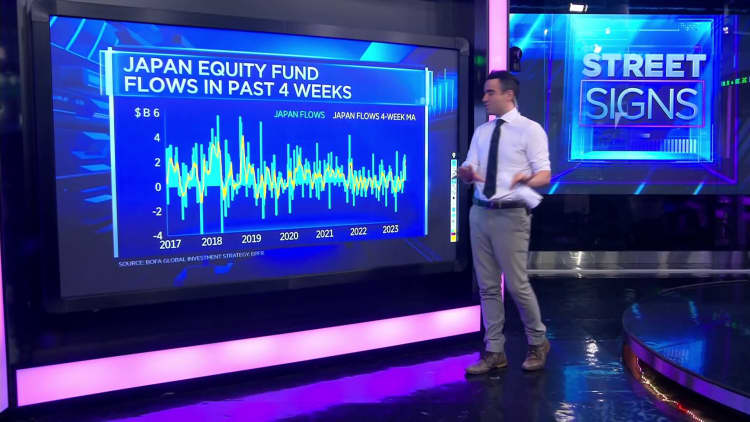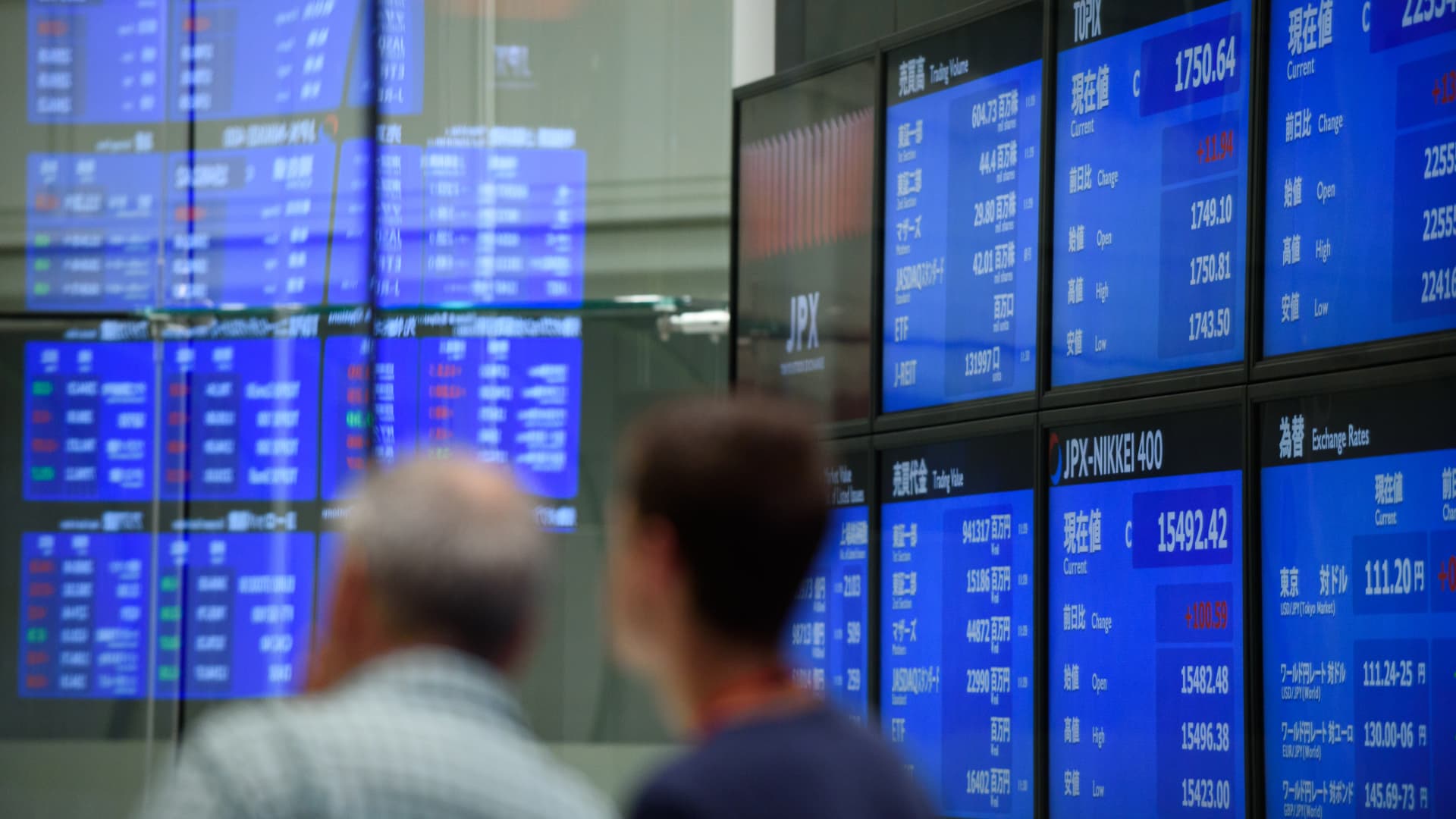Visitors look at screens displaying stock indices at the Tokyo Stock Exchange in Tokyo, Japan, on Tuesday, July 24, 2018.
Akio Kon | Bloomberg | Getty Images
Japan’s Nikkei 225 can reach 40,000 points in the next 12 months as fundamentals are “pointing in the right direction,” according to market strategist Jesper Koll.
His optimism in Japan also comes from a strong rebound in business confidence and a supportive fiscal policy.
Should the prediction come true, this would mean that the Nikkei would have breached its all-time high of 38,195 achieved on Dec 29, 1989.
At the time, Japan was in the middle of a real estate bubble. When the property market collapsed, equity and land prices also crashed, triggering a period of low economic growth in Japan that continues today.

Koll, an expert director at financial services firm Monex Group, told CNBC’s “Squawk Box Asia” that in addition to investor interest, “Japanese CEOs are now using their retained earnings for the first time in 30 years to actually invest in people, to invest in the business.”
“I see no reason for why we shouldn’t be setting [a] mark above 40,000 over the next 12 months,” he said on Monday.
Japan’s central bank has maintained an ultra-loose monetary policy for more than 20 years.
Asked if his forecasts take into account the expectation that the Bank of Japan could tighten its monetary policy, Koll said that if there is no push factor for the BOJ to move on interest rates, “why should I change monetary policy just for the sake of changing monetary policy? It makes absolutely no sense.”
He thinks that BOJ governor Kazuo Ueda is having a “watchful waiting” stance in terms of the economic data coming out of Japan.
The main thing to watch is next year’s spring wage negotiations, he said, adding it will tell if “the deflation spell is broken, and that Japanese CEOs are willing to invest in people and capital expenditure.”
Only then will the BOJ normalize interest rates, he said, but “this would not be for at least six to nine months.”

However, IG analyst Tony Sycamore holds a slightly different view from Koll.
He said that while there is more upside in the Nikkei, “a lot of good news is already priced in.”
With the Nikkei already seeing a 27% gain year-to-date, he expects the rally to falter somewhat between the 36,000 mark and the all-time high of 38,195, before settling in 12 months’ time at around 33,000. That’s on the expectation that the BOJ will move to tighten monetary policy.
To Sycamore, history could also offer some insights.
“Keep in mind the last thing the BOJ wants to create is another asset bubble in Japan after spending three decades recovering from the last one,” he told CNBC.
However, Koll is of the view that to make the case that Japanese assets are overvalued is “extremely difficult to do.”
He pointed out that the Japanese market is trading at a 14 times price-to-earnings ratio, but half the companies on the market are trading below book value.
While real estate prices are at the levels not seen since the bubble, they are still affordable after taking in current mortgage rates and wages, Koll said.
“So from that perspective, is there an asset bubble here that is causing social disruption that is causing discomfort within the Japanese economy, within Japanese society? The answer is absolutely no.”


